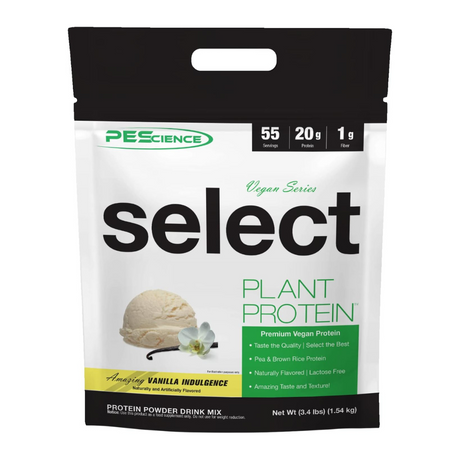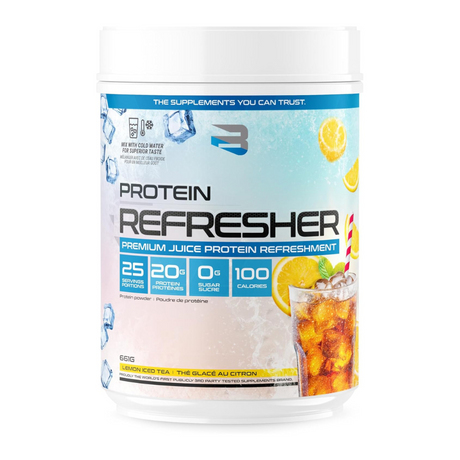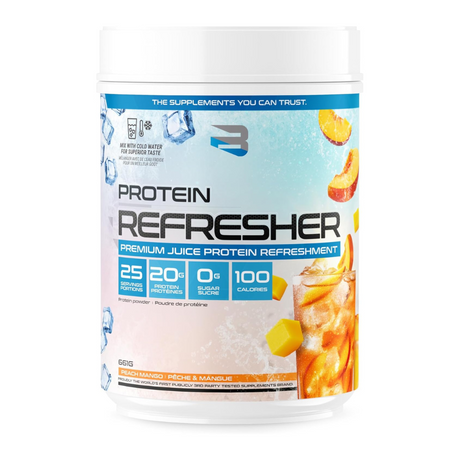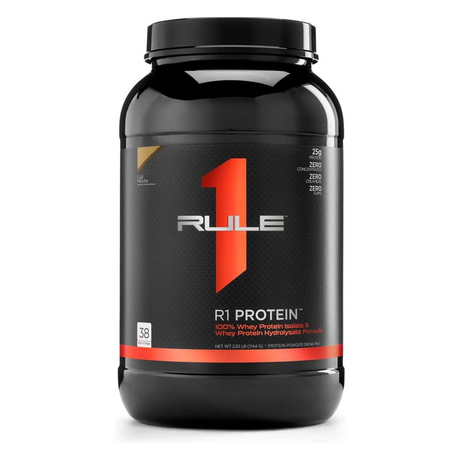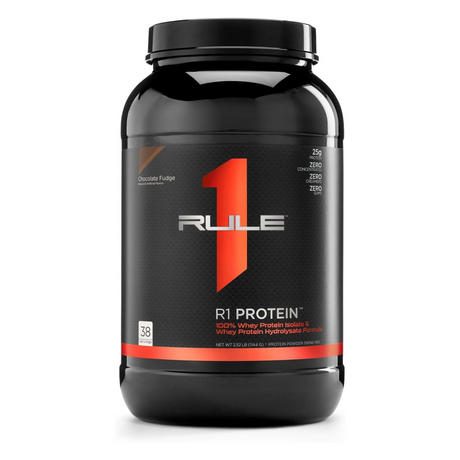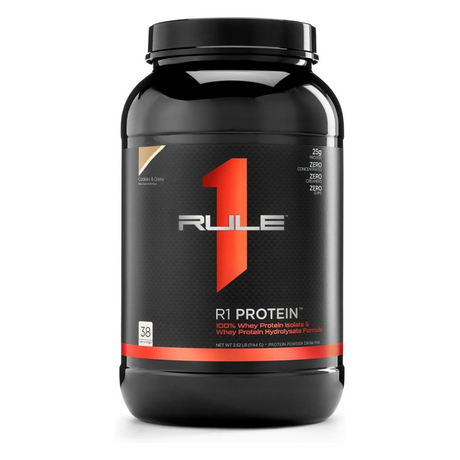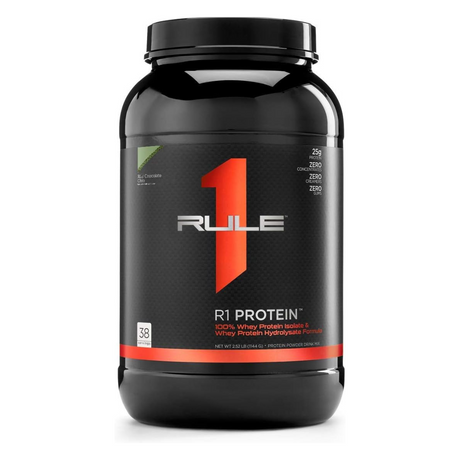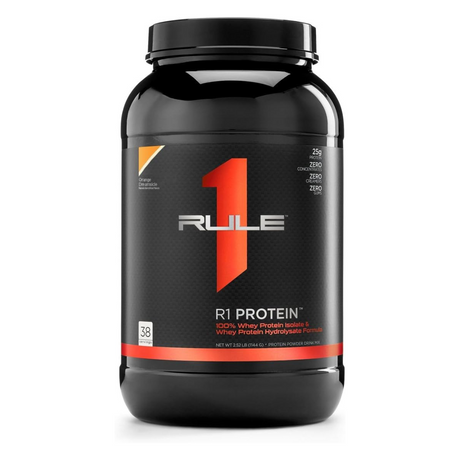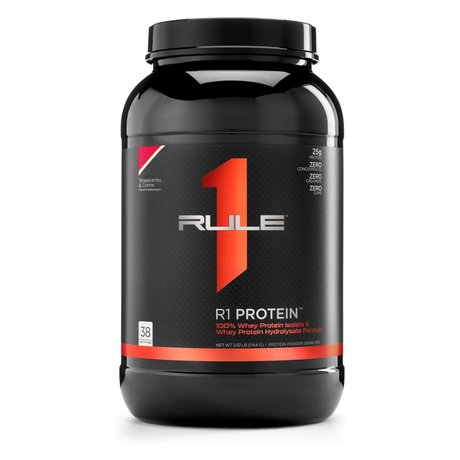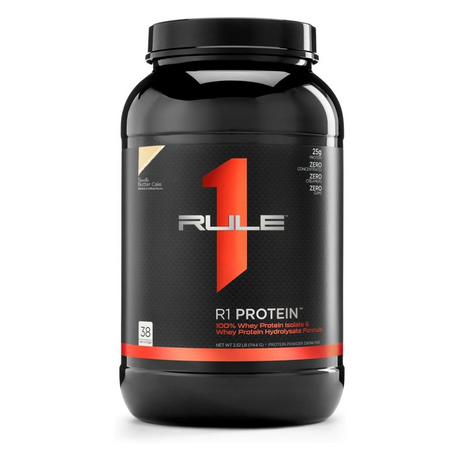February 27, 2025 | by FUEL SUPPLEMENTS
In the world of fitness and nutrition, protein shakes are a popular choice for people who want to improve their workouts and boost their health. But do these protein shakes help you reach your fitness goals?
This blog will examine protein powder, covering its benefits, risks, and helpful tips for adding it to your diet.
Exploring the Role of Protein in Fitness
Protein is the body's building block. It is essential for muscle recovery, growth, and general health.
When you exercise, especially with weights, your muscles may get tiny tears. Eating enough protein gives your body the amino acids it needs to fix these tears. This helps your muscles grow and adapt.
Also, protein helps you feel full. It keeps you satisfied for a longer time and helps control your hunger. This is useful for people who want to manage their weight or reach their fitness goals.
The Importance of Protein for Muscle Recovery and Growth
People who care about fitness use protein powder, which helps with muscle recovery and growth. Whey protein, in particular, is quickly absorbed by the body and provides a strong supply of amino acids to muscles that need repair.
Protein is also very important if you want to lose weight. It can make you feel full, which helps reduce cravings and lowers the number of calories you eat. Eating more protein can also speed up your metabolism.
In short, protein is very helpful in building lean muscle and effectively losing weight. Including enough protein in your diet is important to get the most benefits from your workout routine.
How Protein Supports Endurance and Performance
Protein is not just for building muscle. It is also perfect for endurance athletes. When we do long workouts, our bodies use different fuel sources, including protein. Getting enough protein helps keep muscle mass.
Plant protein is an excellent source of essential amino acids that help with endurance. Options like pea protein, soy, and hemp are popular in plant-based protein powders. These powders meet different dietary needs and support muscle repair and recovery.
Also, protein helps keep your energy levels steady during the day. It stops big jumps and drops in blood sugar, allowing you to stay energized for workouts and feel good overall.

Decoding the Types of Protein Powder
Choosing the right protein powder can be confusing because so many choices exist. Knowing about the different kinds and their benefits can help you pick what best fits your health goals and diet.
Whey isolate comes from milk. It is a favorite because it has a lot of protein and is absorbed quickly by the body. There are also plant-based options like pea protein. These are dairy-free and good for vegan diets. Each type has pros and cons, so consider what you need before deciding.
Whey vs. Plant-Based: What's Best for You?
The choice between whey protein and plant-based protein powder often relies on personal diet needs, preferences, and food sensitivities.
Whey protein comes from milk. It is a complete protein with all nine essential amino acids. It absorbs quickly, making it a great option for post-workout recovery. However, whey protein might be hard to digest if someone has lactose intolerance or a dairy allergy.
Plant-based protein powders serve a broader range of dietary choices. Options include pea protein, soy, hemp, and brown rice protein. They are naturally dairy-free, vegan-friendly, and usually easier on the stomach. However, some plant-based proteins may not have the same complete amino acid profile as whey.
Quick Comparison:
Whey Protein:
- Complete amino acid profile
- High absorption rate
- May cause digestive issues for some
Plant-Based Protein:
- Dairy-free and vegan
- Often easier to digest
- May need mixing different sources for a complete amino acid profile
Understanding Isolates, Concentrates, and Hydrolysates
You'll encounter terms like isolates, concentrates, and hydrolysates within protein powders. These variations refer to the processing methods used to create the powder, affecting protein content, digestibility, and absorption rate.
Whey protein, for instance, comes in all three forms:
- Isolate: Undergoes further processing to remove most fat and lactose, increasing protein concentration.
- Concentrate: It contains moderate protein with some naturally occurring carbohydrates and fats.
- Hydrolysate: Pre-digested, making it easier for the body to absorb.
Understanding these distinctions can help you choose a protein powder that aligns with your dietary goals and preferences.

Timing Your Protein Intake for Optimal Results
Getting enough protein is important, but when you eat protein can also help you build muscle, recover, and improve fitness.
Protein timing means giving your body the amino acids it needs at the right times for muscle growth. By optimizing your protein intake, you can improve recovery, adaptation, and growth.
The Best Times to Consume Protein for Muscle Gain
The "anabolic window" is the time after exercise when your muscles are ready to grow. This is a great opportunity to consume protein.
Whey protein is a good choice because it absorbs quickly. Consuming whey protein right after your workout delivers amino acids to your muscles fast, helping with muscle repair and growth.
However, protein intake should not be limited to post-workout. Eating protein throughout the day ensures a steady flow of amino acids. For example, casein protein before bed releases amino acids slowly, supporting muscle recovery overnight.
Pre-Workout vs. Post-Workout: Protein Timing Strategies
There is an ongoing debate about taking protein before or after workouts. Both strategies can be beneficial:
- Pre-Workout Protein: Helps fuel your muscles and prevents muscle breakdown during exercise.
- Post-workout Protein: Provides amino acids for recovery and muscle growth.
For optimal results, a combination of pre- and post-workout protein intake can help your body maintain a steady supply of amino acids.
Fuel your fitness journey with protein powder. It can help you recover muscles, grow stronger, and boost your performance.
Knowing about different protein powders, like whey and plant-based options, can help you choose your needs. Timing your protein intake around workouts also enhances results.
If you need help picking the right protein powder, our experts can help. Start using the best protein fuel to reach your workout goals!

Frequently Asked Questions
Q: Can protein powder replace meals?
A: Protein powder can sometimes supplement meals but should not replace whole foods, which provide essential nutrients and fiber.
Q: How much protein do I need daily?
A: It depends on your activity level, age, muscle mass, and health goals. Most adults need 0.8 grams per kg of body weight, but athletes may require more.
Q: Is protein powder necessary for building muscle?
A: No, but it can help. Whole foods also provide enough protein when paired with resistance training and rest.
Q: Can vegetarians and vegans find suitable protein powders?
A: Yes! Plant-based options like soy, hemp, and pea protein are widely available.
Q: Are there any side effects of consuming protein powder?
A: Some powders contain added sugars or artificial ingredients. Choose trusted brands and check for allergens or digestive issues.
